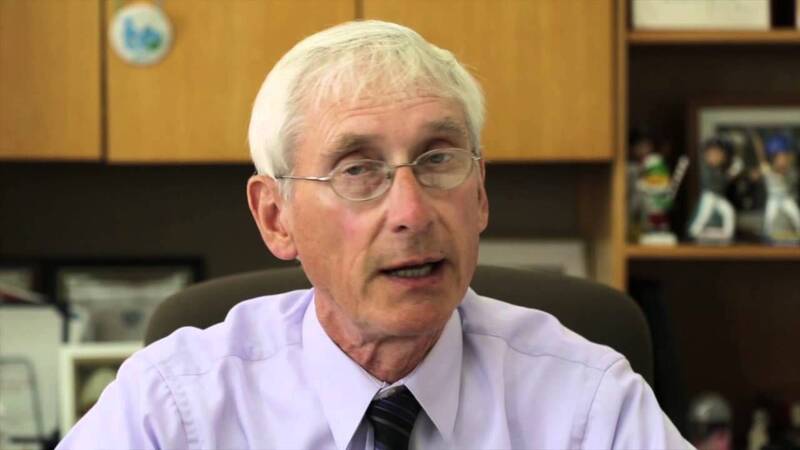This morning Governor Evers signed the budget forwarded from the legislature, but added 78 partial vetoes. The end result is a budget that is a compromise between Evers' budget proposal and the bill passed by the Republican-controlled legislature. The entire veto messages is included below, but some of the primary items of interest include
- An increase in school funding for per-pupil expense from $679 this year and $702 next year. The new funding per-pupil will be $742, and school districts will have more flexibility in applying for supplemental per-pupil funding. Evers lowered the amount of money for personal electronics devices, so the total increase of school funding will be approximately $65 million. This is considerably less than the original budget request. The original budget would have covered 2/3 of the costs of education from state funds. The approved budget falls somewhat short of that goal.
- Lowered the funding for enforcement of work and drug-testing requirements for Foodshare. Thus although the requirements are still law, the state will be severely hampered in implementing the changes.
- The approved bill provides $300 million in tax relief to middle-class families, but less than the 400 million that would have been given under Evers' budget proposal. Evers had intended to pay for his tax cut from removing the state's surplus funds and capping the current exemption for manufacturing companies.
- The new budget removes a controversial provision to allow Tesla to sell cars in the state directly to customers rather than through dealerships. This was seen largely as an attempt to get Representative Chris Kapenga to vote for the budget (Kapenga runs a small business that refurbishes Teslas and sells parts). Kapenga has denied this.
- Health Care funding increases were included. There was a $91 million dollar increase in funding for hourly-paid personal care workers. Increases were also made in Medicaid funding for dental services, respite care funding, and transit aid for people with disabilities.
- The budget removed the money for a study to increase transportation revenue by imposing a mileage-based tax on cars in the state. This provision was controversial largely because it required a study that could be put into law directly by the state's budget committee. This was rolled back at the last minute by the legislature to require full legislative approval. Evers vetoed the cost of the study entirely.
- The provision in the budget to fund a study for a new high-security prison in Green Bay was vetoed. Evers stated that the money for corrections would be used instead for "higher priority institutional needs".
- In what was seen as a big victory for local rights, Evers vetoed the provisions in the budget that would have outlawed local control over quarries in the state.
- Evers partially vetoed the provisions in the bill to reduce Video Service Provider Fees. The reduction in fees proposed in the budget will still take place, but Evers removed the limit on ht enumber of years that municipalities will be getting a subsidy from taxpayers to make up for the loss. This is a win for municipal income, and perhaps a win for community television.
The legislation has until the end of the legislative session at the end of 2021 to override any of these vetoes. At this point it is not clear that the legislature will make an attempt to override any of these vetoes.
Documents
Memberships
Steve is a member of LION Publishers , the Wisconsin Newspaper Association, the Menomonie Area Chamber of Commerce, the Online News Association, and the Local Media Consortium, and is active in Health Dunn Right.
He has been a computer guy most of his life but has published a political blog, a discussion website, and now Eye On Dunn County.



Add new comment